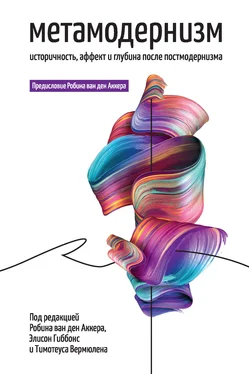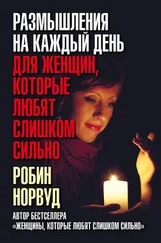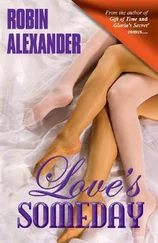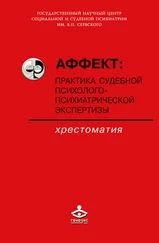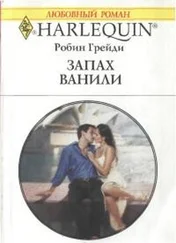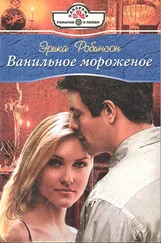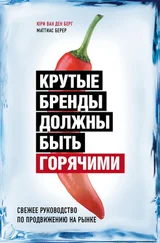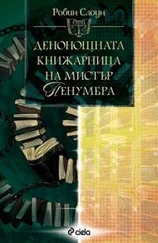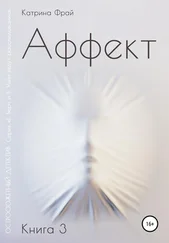Heti, Sheila. 2013. How Should a Person Be? London: Harvill Secker.
Holland, Mary. 2012. ‘A Lamb in Wolf’s Clothing: Postmodern Realism in A. M. Homes’s Music for Torching and This Book Will Save Your Life ’. Critique 53(3): 214–237.
Holland, Mary. 2013. Succeeding Postmodernism: Language and Humanism in Contemporary American Literature . London, New York: Bloomsbury.
Huber, Irmtraud. 2014. Literature After Postmodernism: Reconstructive Fantasies . Houndmills: Palgrave Macmillan.
Huehls, Mitchum. 2016. After Critique: Twenty-First-Century Fiction in a Neoliberal Age . Oxford: Oxford University Press.
Huffer, Lynne. 2013. Are the Lips a Grave?: A Queer Feminist on the Ethics of Sex . New York: Columbia University Press.
Hurd, Robert. 2007. ‘Taking Seinfeld Seriously: Modernism in Popular Culture’. New Literary History 37(4): 761–776.
Hutcheon, Linda. 1988. A Poetics of Postmodernism: History, Theory, Fiction . New York: Routledge.
Hutcheon, Linda. 2002 [1995]. The Politics of Postmodernism . Second Edition. New York: Routledge.
Huyssen, Andreas. 1986. After the Great Divide . London. The Macmillan Press Ltd.
Iser, Wolfgang. 1993. The Fictive and the Imaginary: Charting Literary Anthropology . Baltimore, MD: Johns Hopkins University Press.
Jagoda, Patrick. 2016. Network Aesthetics . Chicago: University of Chicago Press.
James, David. 2012. Modernist Futures: Innovation and Inheritance in the Contemporary Novel . New York: Cambridge University Press.
James, David and Urmila Seshagiri. 2014. ‘Metamodernism: Narratives of Continuity and Revolution’. PMLA 129(1): 87–100.
Jameson, A. D. 2012. ‘Theory of Prose & Better Writing (ctd): The New Sincerity, Tao Lin, & “Differential Perceptions” ’. HTMLGIANT . 28 May 2012. Accessed 12 September 2016. http://htmlgiant.com/craft-notes/theory-of-prose-better-writingctd-the-new-sincerity-differential-percep-tions/
Jameson, Fredric. 1984. ‘Periodizing the 60s’. Social Text 9/10: 178–209.
Jameson, Fredric. 1991 [1984]. ‘The Cultural Logic of Late Capitalism’. In Postmodernism, or, The Cultural Logic of Late Capitalism , 1–54. London; Brooklyn: Verso.
Jameson, Fredric. 1992 [1988]. ‘Postmodernism and Consumer Society’. In Modernism / Postmodernism , edited by Peter Brooker, 163–179. London: Longman.
Jameson, Fredric. 1998. The Cultural Turn: Selected Writings on the Postmodern, 1983–1998 . London; New York: Verso.
Jones, Owen. 2015. ‘Let’s Do Hope Not Despair: Owen Jones Meets Jeremy Corbyn’. YouTube . Accessed 1 November 2016. https://www.youtube. com/watch?v=qBbsU9VkRvQ
Johnson, Merri Lisa. 2008. ‘Dismembering the Heterosexual Imaginary: A Feminist Cultural Anatomy of the Inёdelity Narrative in Nancy Mair’s Remembering the Bone House ’. Tulsa Studies in Women’s Literature 27(2): 327–352.
Johnston, Lucy. 2015. Digital Handmade: Craftsmanship and the New Industrial Revolution . New York: Thames and Hudson.
Kagan, Robert. 2008. The Return of History and the End of Dreams . New York: Vintage Books.
Kaletsky, Anatole. 2011 [2010]. Capitalism 4.0: The Birth of a New Economy . London: Bloomsbury.
Kashin, Oleg. 2014. ‘The Most Dangerous Man in Ukraine Is an Obsessive War Reenactor Playing Now with Real Weapons’. New Republic . 23 July 2014. Accessed 15 August 2014. https://newrepublic.com/ar-ticle/118813/igor-strelkov-russian-war-reenactor-fights-real-war-ukraine
Kaufman, Charlie, writer. Dir. Spike Jones. 2002. Adaptation . Los Angeles: Columbia Pictures.
Kelly, Adam. 2010. ‘David Foster Wallace and the New Sincerity in American Fiction’. In Consider David Foster Wallace: Critical Essays , edited by David Hering, 131–46. Los Angeles: Sideshow.
Kelsey, Robin. 2009. ‘Eye of the Beholder: Robin Kelsey on Michael Fried’s Why Photography Matters. ’ Artforum International 47(5): 53–54, 57–58.
Kenner, Hugh. 1985. ‘The Politics of the Plain Style’. New York Time s. 15 September 1985. Accessed 1 November 2016. http://www.nytimes. com/1985/09/15/books/the-politics-of-the-plain.html?pagewanted=all
Keyes, Ralph. 2004. The Post-Truth Era: Dishonesty and Deception in Contemporary Life . New York: St Martins Press.
Kirby, Alan. 2009. Digimodernism: How New Technologies Dismantle the Postmodern and Reconёgure Our Culture . New York; London: Continuum.
Kjellman-Chapin, M. 2009. ‘Fake Identity, Real Work: Authenticity, Autofiction, and Outsider Art’. SPECS Journal of Art and Culture 2: 148–58. http:// scholarship.rollins.edu/cgi/viewcontent.cgi?article=1151&context=specs
Knausgaard, Karl Ove. 2013 [2009]. A Death in the Family [My Struggle:1] . Trans. Don Bartlett. London: Vintage Books.
Konstantinou, Lee. 2009. ‘Wipe That Smirk Off Your Face: Postironic Literature and the Politics of Character’. PhD diss., Stanford University.
Konstantinou, Lee. 2016a. Cool Characters: Irony and American Fiction . Cambridge, MA: Harvard University Press.
Konstantinou, Lee. 2016b. ‘Barack Obama’s Postironic Bildungsroman’. In Barack Obama’s Literary Legacy: Readings of Dreams from My Father , edited by Richard Purcell and Henry Veggian, 119–140. New York: Palgrave MacMillan.
Konstantinou, Lee. 2017. ‘Neorealist Fiction’. In American Literature in Transition: 2000–2010 , edited by Rachel Greenwald Smith. Cambridge: Cambridge University Press.
Kotsko, Adam. 2010. Awkwardness . Winchester, UK: Zero Books.
Kraus, Chris. 2006 [1998]. I Love Dick. Los Angeles, CA: Semiotext(e).
Krauthammer, Charles. 2003. ‘Holiday From History’. 14 February 2003. The Washington Post. Accessed 14 August 2017. https://www.washing-tonpost.com/archive/opinions/2003/02/14/holiday-from-history/ 05dd0d16-b653-47bd-baab-06794e7291ec/?utm_term=.5419be56155f
Kushner, Rachael. 2014 [2013]. The Flamethrowers . New York: Scribner.
Lacan, Jacques. 1991. The Seminar of Jacques Lacan, Book II: The Ego in Freud’s Theory and in the Technique of Psychoanalysis 1954–1955 . Edited by Jacques-Alain Miller. Translated by Sylvana Tomaselli. New York: Norton.
Landy, Joshua. 2011. ‘Still Life in a Narrative Age: Charlie Kaufman’s Adaptation ’. Critical Inquiry 37(3): 497–514.
Lapoujade, David. 2000. ‘From Transcendental Empiricism to Worker Nomadism’. Pli: Warwick Journal of Philosophy 9: 190–199.
Laruelle, Fanзois. 2011. The Concept of Non-Photography . Second Revised edition. Urbanomic.
Latour, Bruno. 2010. ‘An Attempt at a “Compositionist Manifesto” ’. New Literary History 41: 471–490.
Leighton, Angela. 2007. On Form: Poetry, Aestheticism, and the Legacy of the Word . Oxford: Oxford University Press.
Lee, Stewart. 2007. ‘Stewart Lee – Taxi Driver Argument’. YouTube . Accessed 1 November 2016. https://www.youtube.com/watch?v=4n-UGQcG3Jw&list=RD4n-UGQcG3Jw#t=11
Lerner, Ben. 2011. Leaving the Atocha Station . Minneapolis, MN: Coffee House Press.
Lerner Ben. 2014. 10:04 . London: Granta.
Lethem, Jonathan. 2003. The Fortress of Solitude . New York: Doubleday.
Lethem, Jonathan. 2013. Dissident Garden . New York: Doubleday.
Levinas, Emmanuel. 1998 [1981]. Otherwise Than Being or Beyond Essence . Pittsburgh, PA: Duquesne University Press.
LeWitt, Sol. 1969. ‘Sentences on Conceptual Art’. Accessed 20 September 2016. http://www.altx.com/vizarts/conceptual.html
Читать дальше
Конец ознакомительного отрывка
Купить книгу
